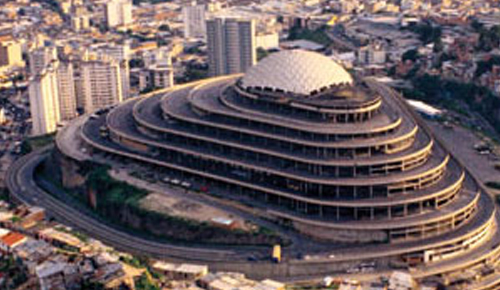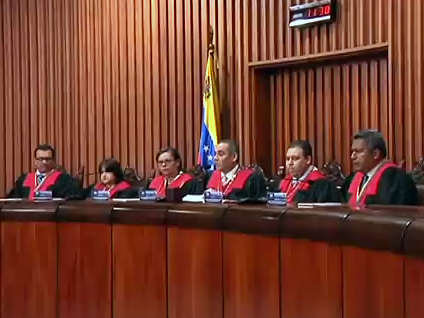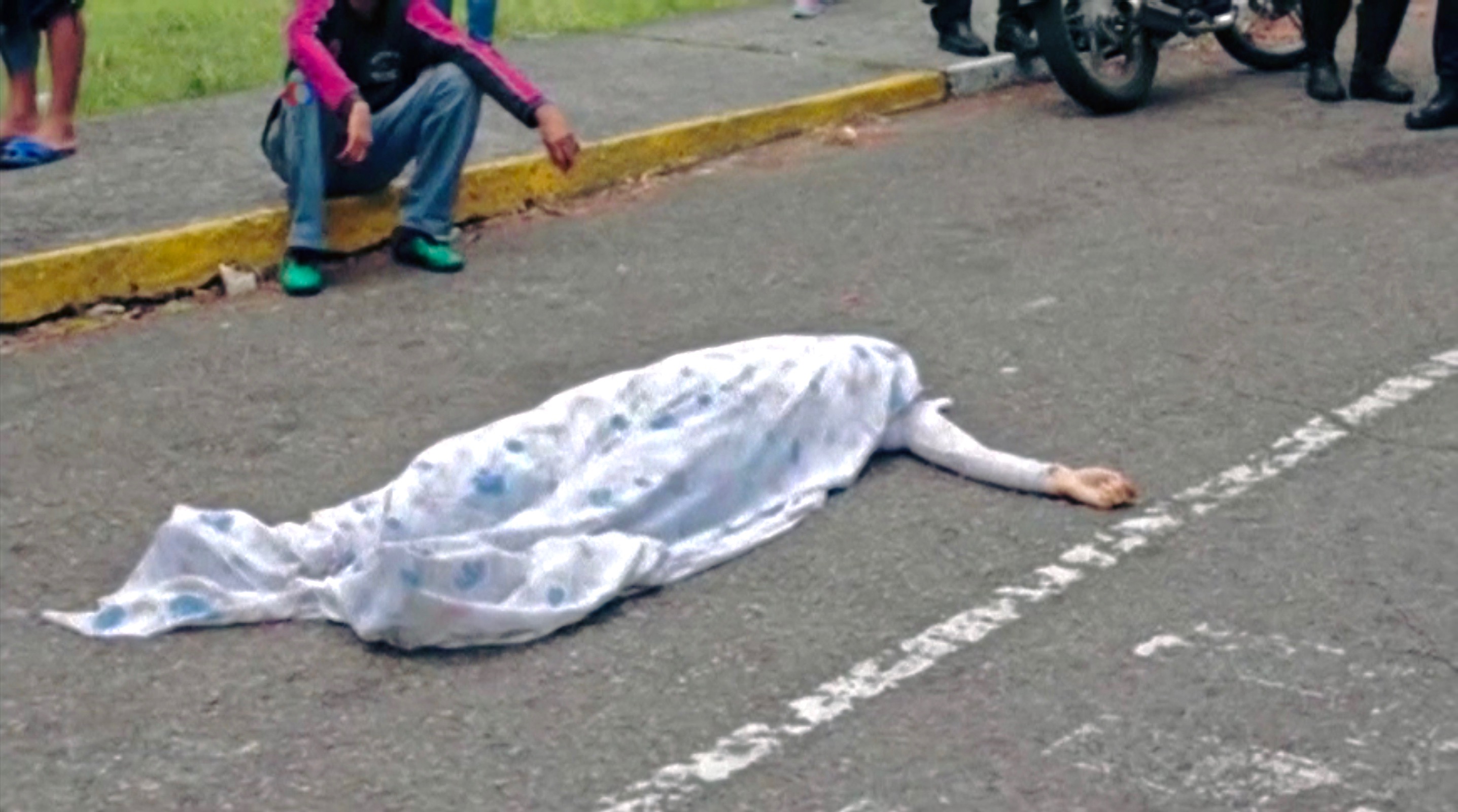|
Miguel Rodríguez Torres
Miguel Eduardo Rodríguez Torres (born 21 January 1964) was the Minister of the Popular Power for Interior, Justice and Peace of Venezuela from 2013, until he was replaced by Carmen Meléndez on 24 October 2014. Early life Torres was born in 1964 at the Dr. Carlos Arvelo Military Hospital in Caracas. Military career In 1980, he attended the Military Academy of Venezuela. 1992 coup attempt During the February 1992 coup attempt carried out by Hugo Chávez, Rodríguez Torres took part in the conspiracy. Chávez's goal, assisted by Cuban president Fidel Castro, was to capture and kill President Carlos Andrés Pérez and then establish former president Rafael Caldera into the presidency. Rodríguez Torres, an army captain at the time, was given the task of capturing and killing President Pérez after another coup conspirator refused to participate after discovering that Rafael Caldera would be placed as president. President Pérez, who had recently arrived from Davos, learne ... [...More Info...] [...Related Items...] OR: [Wikipedia] [Google] [Baidu] |
Bolivarian Intelligence Service
The Bolivarian National Intelligence Service ( es, Servicio Bolivariano de Inteligencia Nacional, SEBIN) is the premier intelligence agency in Venezuela. SEBIN is an internal security force subordinate to the Vice President of Venezuela since 2012 and is dependent on Vice President Delcy Rodríguez. SEBIN has been described as the political police force of the Bolivarian government. History The Venezuelan intelligence agency has an extensive record of human rights violations, including recent allegations of torture and murder of political opponents. Predecessors The predecessor of SEBIN was established in March 1969 with the name of DISIP, '' Dirección Nacional de los Servicios de Inteligencia y Prevención'' ("National Directorate of Intelligence and Prevention Services"), by then-president Rafael Caldera, replacing the Dirección General de Policía (DIGEPOL). Human Rights Watch wrote in 1993 that DISIP was involved in targeting political dissenters within Venezuela and ... [...More Info...] [...Related Items...] OR: [Wikipedia] [Google] [Baidu] |
2013 Venezuelan Presidential Election
Presidential elections were held in Venezuela on 14 April 2013 following the death of President Hugo Chávez on 5 March 2013. Nicolás Maduro—who had assumed the role of acting president since Chávez's death—was declared winner with a narrow victory over his opponent Henrique Capriles, the Governor of Miranda. Capriles had run in the previous election less than a year before, losing to Chávez by an 11-point margin. This time the margin of victory was much smaller (being 1.49%), and thus became the closest presidential election of the country since the 1968 election. Capriles refused to accept the results of the elections, claiming election irregularities, despite the electoral council's post-election audit of a random selection of 54% of votes, comparing the electronic records with the paper ballots, which showed no problems. Capriles initially called for an audit of the remaining 46% of votes, asserting that this would show that he had won the election. The election counc ... [...More Info...] [...Related Items...] OR: [Wikipedia] [Google] [Baidu] |
Sucre, Miranda
Sucre Municipality is one of the 21 municipalities (municipios) that makes up the Venezuelan state of Miranda and one of five the municipalities that make up the Metropolitan District of Caracas. According to a 2016 population estimate by the National Institute of Statistics of Venezuela, the municipality has a population of 691,317. The parish of Petare is the municipal seat of the Sucre Municipality. Name The municipality is one of several in Venezuela named " Sucre Municipality" in honour of Venezuelan independence hero Antonio José de Sucre. Demographics The Sucre Municipality, according to a 2016 population estimate by the National Institute of Statistics of Venezuela, has a population of 691,317 (up from 591,414 in 2000). This amounts to 2.2% of the state's population. The municipality's population density (2016) is about 11,000 people per square mile (4,200/km²). Government Mayors Education Colegio Japonés de Caracas (カラカス日本人学校), the sole ... [...More Info...] [...Related Items...] OR: [Wikipedia] [Google] [Baidu] |
Dirección General De Contrainteligencia Militar
The General Directorate of Military Counterintelligence ( es, Dirección General de Contrainteligencia Militar, DGCIM) is the military counterintelligence agency of Venezuela, whose function is to prevent intelligence or espionage internally and externally by military and civilians. History The agency originates from the Armed Forces Intelligence Services (SIFA), which was signed into service on 30 August 1957. In 1974, the agency changed its name to the Directorate of Military Intelligence (DIM). On 16 May 1977, the military organization changed its name to the Directorate General of Military Intelligence Sector (DGSIM) and then later changed the name of Directorate General of Military Intelligence (DGIM). Under these names, their operations functioned as military intelligence for the Venezuelan military. On 21 July 2011, the organization changed its name to the Directorate General of Military Counterintelligence (DGCIM), whose function is no longer military intelligence but ... [...More Info...] [...Related Items...] OR: [Wikipedia] [Google] [Baidu] |
2017 Venezuelan Constituent Assembly Election
Constituent Assembly elections were held in Venezuela on 30 July 2017 to elect the members of the 2017 Constituent National Assembly ( es, Asamblea Nacional Constituyente; ANC). Unlike the 1999 Constituent National Assembly, which was assembled following a referendum, the 2017 election was convened by the presidential decree of President Nicolás Maduro. Approximately two-thirds (364) of Assembly members were elected by municipal citizens while members of seven social sectors including trade unions, communal councils, indigenous groups, farmers, students, and pensioners elected the remaining one-third (181) of members. The new constitution proposed by the Constituent Assembly will be subject to approval by referendum. The opposition's refusal to contest the election meant that most candidates of the Constituent Assembly were likely to be supporters of the government. The upcoming regional and presidential elections may also be delayed from their planned dates under a new const ... [...More Info...] [...Related Items...] OR: [Wikipedia] [Google] [Baidu] |
Chavismo
''Chavismo'' (from es, chavismo), also known in English as Chavism or Chavezism, is a left-wing political ideology based on the ideas, programs and government style associated with the Venezuelan President between 1999 and 2013 Hugo Chávez that combines elements of democratic socialism, socialist patriotism, Bolivarianism, and Latin American integration. Supporters of Hugo Chávez and ''Chavismo'' are known as ''Chavistas''. Policies Several political parties in Venezuela support ''Chavismo''. The main party, founded by Chávez, is the United Socialist Party of Venezuela ( es, Partido Socialista Unido de Venezuela, links=no), usually referred to by the four letters PSUV). Other parties and movements supporting ''Chavismo'' include Fatherland for All (Spanish: ''Patria Para Todos'' or PPT) and ''Tupamaros''. Broadly, ''Chavismo'' policies include nationalization, social welfare programs and opposition to neoliberalism (particularly the policies of the International Monetary ... [...More Info...] [...Related Items...] OR: [Wikipedia] [Google] [Baidu] |
Democratic Unity Roundtable
The Democratic Unity Roundtable ( es, Mesa de la Unidad Democrática, MUD) was a catch-all electoral coalition of Venezuelan political parties formed in January 2008 to unify the opposition to President Hugo Chávez's United Socialist Party of Venezuela in the 2010 Venezuelan parliamentary election. A previous opposition umbrella group, the '' Coordinadora Democrática'', had collapsed after the failure of the 2004 Venezuelan recall referendum. The coalition was made of primarily centrist and centre-left parties. The main components were Democratic Action and Copei, the two parties who dominated Venezuelan politics from 1959 to 1999. Since the 2013 Venezuelan presidential election, Justice First became the largest opposition party, and Henrique Capriles Radonski became the leader of the opposition. In the 2015 parliamentary election, the coalition became the largest group in the National Assembly with 112 out of 167 (a supermajority), ending sixteen years of PSUV rule of th ... [...More Info...] [...Related Items...] OR: [Wikipedia] [Google] [Baidu] |
Luisa Ortega Díaz
Luisa Marvelia Ortega Díaz (born 11 January 1958) is a Venezuelan lawyer. Between December 2007 and August 2017, she served as the Prosecutor General of Venezuela. A proponent of the Chavismo ideology, Ortega Díaz was fired as Prosecutor General on 5 August 2017 by the Supreme Tribunal of Justice and the Constituent National Assembly (ANC) promoted by Nicolás Maduro, following a breaking with the Maduro government as a result of the 2017 Venezuelan constitutional crisis in the context of the crisis in Venezuela. This dismissal was rejected by the opposition-led National Assembly of Venezuela, arguing that only that institution had the power to carry out said removal according to the Constitution, and cataloging the Prosecutor as the only legitimate authority of the Public Ministry. As a result, she is called by the National Assembly, the Supreme Tribunal of Justice of Venezuela in exile and some media outlets as the Prosecutor General of Venezuela in exile. Early life and c ... [...More Info...] [...Related Items...] OR: [Wikipedia] [Google] [Baidu] |
Colombia
Colombia (, ; ), officially the Republic of Colombia, is a country in South America with insular regions in North America—near Nicaragua's Caribbean coast—as well as in the Pacific Ocean. The Colombian mainland is bordered by the Caribbean Sea to the north, Venezuela to the east and northeast, Brazil to the southeast, Ecuador and Peru to the south and southwest, the Pacific Ocean to the west, and Panama to the northwest. Colombia is divided into 32 departments and the Capital District of Bogotá, the country's largest city. It covers an area of 1,141,748 square kilometers (440,831 sq mi), and has a population of 52 million. Colombia's cultural heritage—including language, religion, cuisine, and art—reflects its history as a Spanish colony, fusing cultural elements brought by immigration from Europe and the Middle East, with those brought by enslaved Africans, as well as with those of the various Amerindian civilizations that predate colonization. Spanish is th ... [...More Info...] [...Related Items...] OR: [Wikipedia] [Google] [Baidu] |
Colectivo (Venezuela)
Colectivos (, "collectives") are Far-left politics, far-left Venezuela, Venezuelan groups that support Nicolás Maduro, the Bolivarian government, the Great Patriotic Pole (GPP) political alliance and the ruling party, the United Socialist Party of Venezuela (PSUV). ''Colectivo'' has become an umbrella term for armed paramilitary groups that operate in poverty-stricken areas and attack individuals, engaging in "extortion, kidnapping, drug trafficking and murder". They commit extrajudicial killings and terrorize those who disagree with them with impunity. The term may also refer to a community organization with any shared purpose, such as a neighborhood group that organizes social events. Some colectivos began by doing community work or helping with social programs in barrios, and their members said they promoted democracy, political activism and culture. As of 2019, there are dozens of colectivos in Venezuela. In 2018, InSight Crime reported 46 groups in one slum, ''barrio'' ... [...More Info...] [...Related Items...] OR: [Wikipedia] [Google] [Baidu] |
2014 Venezuelan Protests
In 2014, a series of protests, political demonstrations, and civil insurrection began in Venezuela due to the country's high levels of urban violence, inflation, and chronic shortages of basic goods attributed to economic policies such as strict price controls. Mass protesting began in earnest in February following the attempted rape of a student on a university campus in San Cristóbal. Subsequent arrests and killings of student protesters spurred their expansion to neighboring cities and the involvement of opposition leaders. The year's early months were characterized by large demonstrations and violent clashes between protesters and government forces that resulted in nearly 4,000 arrests and 43 deaths, including both supporters and opponents of the government. Background Since Hugo Chávez was elected President of Venezuela in 1998, he and his political ambitions proved to be controversial. Under Chávez, oil revenues in the 2000s brought funds not seen in Venezuela since t ... [...More Info...] [...Related Items...] OR: [Wikipedia] [Google] [Baidu] |




